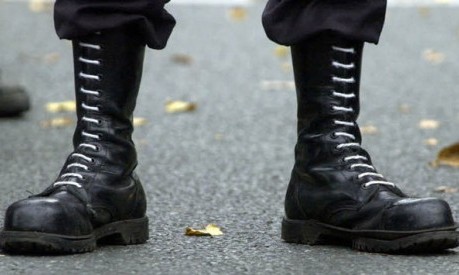A rising tide of restrictions on religion spread across the world between mid-2009 and mid-2010, according to a new study by the Pew Research Center’s Forum on Religion & Public Life. Restrictions on religion rose in each of the five major regions of the world – including in the Americas and sub-Saharan Africa, the two regions where overall restrictions previously had been declining.
The share of countries with high or very high restrictions on religious beliefs and practices rose from 31% in the year ending in mid-2009 to 37% in the year ending in mid-2010. Because some of the most restrictive countries are very populous, three-quarters of the world’s approximately 7 billion people live in countries with high government restrictions on religion or high social hostilities involving religion, up from 70% a year earlier.
Restrictions on religion rose not only in countries that began the year with high or very high restrictions or hostilities, such as Indonesia and Nigeria, but also in many countries that began with low or moderate restrictions or hostilities, such as Switzerland and the United States. (See sidebar on the U.S..)
The rising tide of restrictions in the latest year studied is attributable to a variety of factors, including increases in crimes, malicious acts and violence motivated by religious hatred or bias, as well as increased government interference with worship or other religious practices. For instance, a November 2009 constitutional referendum in Switzerland banned the construction of minarets on mosques in the country. In Indonesia, more than two dozen churches were forced to close due to pressure from Islamist extremists or, in some instances, local officials. And in Nigeria, violence between Christian and Muslim communities, including a series of deadly attacks, escalated throughout the period.
During the latest year covered in the study, there also was an increase in harassment or intimidation of particular religious groups. Indeed, five of the seven major religious groups monitored by the study – Jews, Christians, Buddhists, adherents of folk or traditional religions, and members of other world religions – experienced four-year highs in the number of countries in which they were harassed by national, provincial or local governments, or by individuals or groups in society (for details, see Harassment of Specific Groups).
This is the third time the Pew Forum has measured restrictions on religion around the globe. The new study scores 197 countries and territories on the same two indexes used in the previous studies: 1
- The Government Restrictions Index (GRI) measures government laws, policies and actions that restrict religious beliefs or practices. The GRI is comprised of 20 measures of restrictions, including efforts by governments to ban particular faiths, prohibit conversions, limit preaching or give preferential treatment to one or more religious groups.
- The Social Hostilities Index (SHI) measures acts of religious hostility by private individuals, organizations and social groups. This includes mob or sectarian violence, harassment over attire for religious reasons and other religion-related intimidation or abuse. The SHI includes 13 measures of social hostilities. Read more
Sources
Additional readingNews category: Features.




